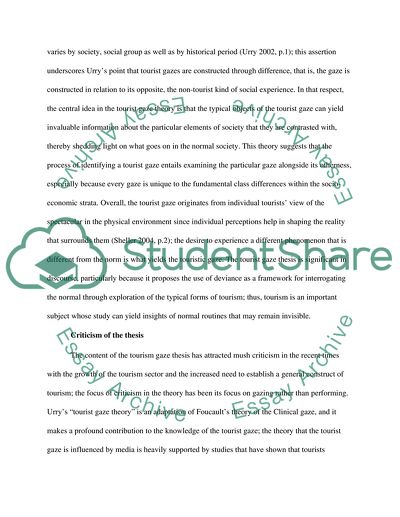Cite this document
(“The Tourist Gaze Theory by John Urry Essay Example | Topics and Well Written Essays - 2000 words”, n.d.)
The Tourist Gaze Theory by John Urry Essay Example | Topics and Well Written Essays - 2000 words. Retrieved from https://studentshare.org/sociology/1632477-essay-topic-how-has-the-tourist-gaze-thesis-been-critiqued-module-name-tourist-identity-and-risk
The Tourist Gaze Theory by John Urry Essay Example | Topics and Well Written Essays - 2000 words. Retrieved from https://studentshare.org/sociology/1632477-essay-topic-how-has-the-tourist-gaze-thesis-been-critiqued-module-name-tourist-identity-and-risk
(The Tourist Gaze Theory by John Urry Essay Example | Topics and Well Written Essays - 2000 Words)
The Tourist Gaze Theory by John Urry Essay Example | Topics and Well Written Essays - 2000 Words. https://studentshare.org/sociology/1632477-essay-topic-how-has-the-tourist-gaze-thesis-been-critiqued-module-name-tourist-identity-and-risk.
The Tourist Gaze Theory by John Urry Essay Example | Topics and Well Written Essays - 2000 Words. https://studentshare.org/sociology/1632477-essay-topic-how-has-the-tourist-gaze-thesis-been-critiqued-module-name-tourist-identity-and-risk.
“The Tourist Gaze Theory by John Urry Essay Example | Topics and Well Written Essays - 2000 Words”, n.d. https://studentshare.org/sociology/1632477-essay-topic-how-has-the-tourist-gaze-thesis-been-critiqued-module-name-tourist-identity-and-risk.


